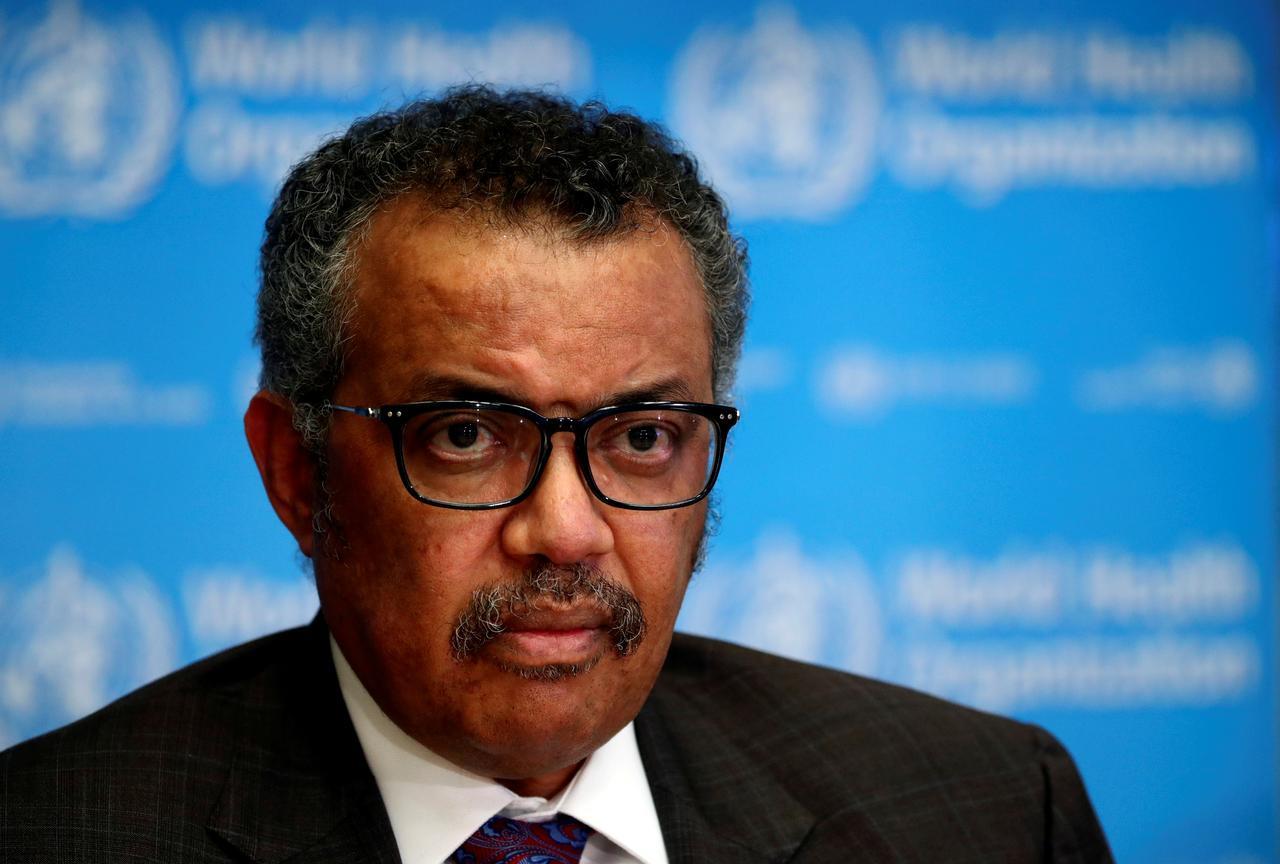GENEVA, May 6 (Reuters) - The head of the World Health Organization (WHO) on Wednesday warned of the risks of returning to lockdown if countries emerging from pandemic restrictions do not manage transitions "extremely carefully and in a phased approach".
Director-General Tedros Adhanom Ghebreyesus listed a series of steps needed before countries lift measures designed to control the spread of the COVID-19 respiratory disease, such as surveillance controls and health system preparedness.
"The risk of returning to lockdown remains very real if countries do not manage the transition extremely carefully and in a phased approach," he said at a virtual briefing in Geneva.
Tedros, who has come under fire for his handling of the outbreak, said that he would conduct an "after-action" assessment of the agency's response, but wait until the pandemic recedes to do so.
"While the fire is raging I think our focus should not be divided," he said.
He defended the WHO's record on warning about the potential for human-to-human transmission of the new coronavirus, saying it informed the world of that in early January.
The Geneva-based body has been accused of being "China centric" by top donor the United States, which has cut off funding to the body.
U.S. Secretary of State Mike Pompeo has said he has "evidence" that the new coronavirus emerged from a laboratory in Wuhan, China, whereas scientists have advised the WHO that it is of animal origin.
WHO epidemiologist Maria Van Kerkhove said that the agency was discussing a further "academic" mission to China to look at the virus origins.
"Without knowing where the animal origin is it is difficult for us to prevent this from happening again," she said.
"There is discussion with counterparts in China for a further mission which would be more academic in focus and really focus on looking at what happened at the beginning in terms of the exposures with different animals so that we can look to have an approach to find the zoonotic source," she added.
Tedros stressed the need for investment in health systems now to save lives later.
"The COVID-19 pandemic will eventually recede but there can be no going back to business as usual," he said. He also urged countries to address inequalities that he said were "fuelling" the pandemic.
